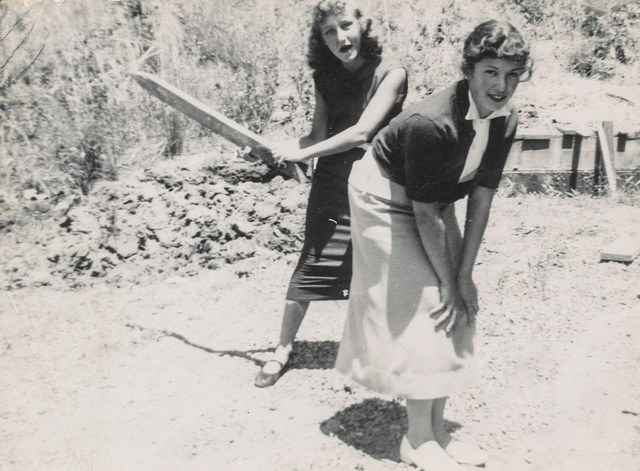Years ago, a therapist I knew described life as a square.
We can picture a box, if that’s helpful.
She explained that each side represents an aspect of our lives. If we develop one side more than the others, the square is incomplete (or in the box example, the sides are lopsided and won’t fit together). It’s important, she reminded me, that we care for all of the aspects of our lives because it can be dangerous to focus too much on one.
I pictured that square with the following four sides: mental, physical, spiritual and emotional. And I truly focused on bringing more balance into my life over the years, being cognizant of caring for each side and neglecting none.
Over time, one area or another may need more attention, but the truth is that to be whole individuals we truly do [cut] have a responsibility to take care of each aspect of ourselves and to provide that balance so that we can function well. In my own life, I address the physical needs by eating well, taking care of my skin, and going to the gym regularly. To meet the needs of my mind, I read often, challenge myself and even began to learn a new language. From the spiritual perspective, I practice kindness and gratitude, take a yoga class weekly, meditate as often as I can, commune with nature and spend time practicing my spiritual beliefs.
The area that continues to require more focus is the emotional side.
In the last couple of years, I’ve worked hard to change my life. My marriage ended, and I relocated, resulting in a new home, a new job, and a new life entirely. I’ve also deeply examined underlying issues in my life and spent quite a bit of time in self-reflection, evaluating old patterns of behavior to create true and lasting change. In doing so, I’ve found that my emotions are now amplified.
I’ve known for years that I’m empathic (or a “highly sensitive person”), but until I began this deep work of changing my life, I did not quite understand the strength of that gift.
It can be overwhelming at times. I have to take extra care to keep myself balanced, to practice routines of self-care, to make sure that I can handle all of the stimuli coming my way in any given day. It’s become absolutely essential that I surround myself with supportive people as a part of this balance.
When I say supportive, many people will read enabling. Those people are reading it wrong.
When I say that I require supportive people in my life, I mean that my encounters with them leave me uplifted and empowered. This doesn’t mean they tell me what I want to hear. Rather, they listen, empathize and—only if I ask—they offer advice. Otherwise, they only offer encouragement.
In this type of relationship, there’s no pressure that I take any solicited advice offered, and no unsolicited advice comes my way. Instead, the encounters are opportunities for each person to be heard, understood and for allowing the opportunity to express their experiences in a safe place without judgment.
The alternative is quite different, and I think we all know people like this. The people who offer constant criticism, not of the constructive variety. Those who offer unsolicited advice. Those who listen to what we have to say and always want to tell us how to fix it or what we’re doing wrong.
When we finish speaking with these people, we feel disheartened. Drained. Misunderstood. Judged.
We don’t feel empowered to do positive things in our lives. We don’t feel encouraged that our best is good enough and that we can always try again when we fail. We feel, instead, defeated.
As a highly sensitive person, this experience can be dark and intense. All of those negative messages get absorbed, and it is difficult to recover our balance in the wake of the onslaught of criticism and judgment. We retreat to our solitude or seek out our support during these times because it is essential that we take ourselves out of the situation entirely. It’s unhealthy for us to have a lot of that kind of contact, particularly when efforts to place boundaries on this type of communication are ignored and invalidated.
The difference between the supportive individuals in our lives and the critical ones is simple but key: compassion.
The supportive friend is compassionate about our situations. They see us not as our choices alone but as the whole of who we are: what we think and what we feel, our past experiences and our belief systems. And because the supportive individual has that relationship with us, they can also speak to any concerns that they have from a place of love. When they do this, they don’t tell us what we’re doing wrong and how we should be doing things. Instead, they draw attention, kindly, to patterns we may not recognize and offer their support if we’re interested in changing those patterns (which we may or may not be open to doing). This isn’t about enabling by only telling each other what we want to hear. This is about knowing what lifts people up and encourages them to do better.
Compassion is a place where judgment is absent, and encouragement flows.
How does criticism differ from true support?
1. Criticism implies (sometimes outright states) that how we’re handling our lives is wrong. Criticism invalidates our thoughts and our feelings, our past experiences and our belief systems.
2. Criticism looks at only this particular situation, this particular action and says that doing our best just isn’t good enough because it’s not measuring up to some perceived standard. And the truth is that criticism comes from the critic’s own thoughts and feelings, their own past experiences and belief systems. They are taking their own lives and applying it to ours.
3. Criticism ignores good manners. What’s frustrating is that many critics will justify their behavior because they feel like they are helping when we’re actually saying that they’re hurting us. The critic doesn’t respond well to boundaries and feels judged by them.
4. The critic feels that kindness is enabling and that to support someone who is choosing differently than they would is an unethical or immoral way to live. They are advocates of honesty but often forget that kindness is also essential and that unsolicited advice is never welcome.
And that takes us back to compassion.
Couldn’t we all use a little more of that?
In the wake of dealing with more than one critic this week, I have had to reach deep for my compassion. What’s sad is that I understand them completely. I know well the rationale that they’re using and where they’re coming from: I’ve listened when they’ve explained why they continue to criticize. And I have to reach for that compassion and kindness when they continue to ignore what I’m saying, continue to barrel right past all of my boundaries.
I continue to assert that people need less criticism, less unsolicited advice. People, me included, need to be empowered. They need to be told all the things that they’re doing right because it’s astounding how little it gets said.
We all feel our own personal failings, and many of us are aware of our flaws. When we’re struggling, we don’t need a reminder of how we fall short. We need encouragement on how to move forward. And that encouragement may require silence, a listening ear, a hug. That encouragement may require trying to find a place of understanding so that we can support someone’s decision even if we would choose differently or think they’re making a mistake.
We’re not here to control other people or to make them live our lives.
In order to have compassion, true compassion, we have to stop expecting (and requiring) everyone else to share our political beliefs, our religion, our parenting methods, our sexuality.
To have compassion, we have to be willing listeners and to listen without formulating our reply in the process. We have to let go of persuading or trying to control the outcome, or forcing our decision-making process on someone else.
Instead, we can be honest but also kind. We can support without ever enabling. We can help people to feel like the best versions of themselves and encourage them to reach their potential. Their potential, not our own.
Compassion seems to be in short supply these days. And on days when the critics have been picking apart my bones and gnawing on my soul, I simply want to lie down and sleep the ache away. But instead, I have to draw deep to find my own compassion and my understanding that the one thing I will never be able to successfully do is teach someone who doesn’t want to learn. That my journey, my endless quest of self-discovery, is not one that everyone will embark on and trying to explain it to someone who is using a different measuring stick will never be successful.
Instead, I can only place distance in those relationships, in kindness and in an effort to protect myself when my boundaries are being trampled otherwise. I can continue to assert my openness to having positive, supporting, empowering relationships should things change in the future.
But mostly, the only thing I can do is draw on my own compassion and surround myself with my support. Because in the end, the world needs a whole lot more support than criticism.
~
Author: Crystal Jackson
Image: simpleinsomnia/Flickr
Editor: Catherine Monkman












Read 0 comments and reply